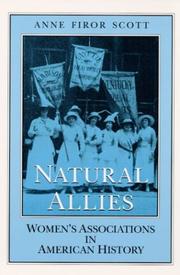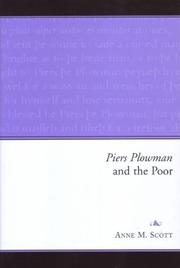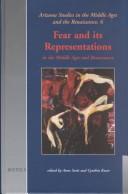| Listing 1 - 10 of 44 | << page >> |
Sort by
|
Book
ISBN: 0919197817 Year: 1975 Publisher: Fredericton, N.B. Fiddlehead Poetry Books
Abstract | Keywords | Export | Availability | Bookmark
 Loading...
Loading...Choose an application
- Reference Manager
- EndNote
- RefWorks (Direct export to RefWorks)
Book
ISBN: 9781409441083 9781409441090 1409441083 1409441091 131713785X 9786613884947 1283572494 9781315581491 9781317137849 9781317137856 Year: 2012 Publisher: Farnham Ashgate
Abstract | Keywords | Export | Availability | Bookmark
 Loading...
Loading...Choose an application
- Reference Manager
- EndNote
- RefWorks (Direct export to RefWorks)
Exploring a range of poverty experiences-socioeconomic, moral and spiritual-this collection presents new research by a distinguished group of scholars working in the medieval and early modern periods. Using new sources-and adopting new approaches to known sources-the authors share insights into the management and the self-management of the poor, and search out aspects of the experience of poverty worthy of note, from which can be traced lasting influences on the continuing understanding and experience of poverty in pre-modern Europe.
History of the United Kingdom and Ireland --- History of France --- anno 1200-1499 --- anno 1500-1599 --- Poverty --- Poor --- Pauvreté --- Pauvres --- History. --- History --- Histoire --- England --- France --- Angleterre --- Social conditions. --- Conditions sociales --- Destitution --- Wealth --- Basic needs --- Begging --- Subsistence economy --- England -- Social conditions. --- Poor -- England -- History. --- Poverty -- England -- History. --- Poverty -- France -- History. --- Business & Economics --- Economic History --- Pauvreté
Book
ISBN: 9781472443380 9781472443397 9781472443403 9781315581484 9781317137870 9781317137887 Year: 2015 Publisher: Farnham, Surrey ; Burlington, Vt. : Ashgate,
Abstract | Keywords | Export | Availability | Bookmark
 Loading...
Loading...Choose an application
- Reference Manager
- EndNote
- RefWorks (Direct export to RefWorks)
For a number of years scholars who are concerned with issues of poverty and the poor have turned away from the study of charity and poor relief, in order to search for a view of the life of the poor from the point of view of the poor themselves. Great studies have been conducted using a variety of records, resulting in seminal works that have enriched our understanding of pauper experiences and the influence and impact of poverty on societies. If we return our gaze to 'charity' with the benefit of those studies' questions, approaches, sources and findings, what might we see differently about how charity was experienced as a concept and in practice, at both community and personal levels? In this collection, contributors explore the experience of charity towards the poor, considering it in spiritual, intellectual, emotional, personal, social, cultural and material terms. The approach is a comparative one: across different time periods, nations, and faiths. Contributors pay particular attention to the way faith inflected charity in the different national environments of England and France, as Catholicism and Calvinism became outlawed and/or minority faith positions in these respective nations. They ask how different faith and beliefs defined or shaped the act of charity, and explore whether these changed over time even within one faith. The sources used to answer such questions go beyond the textual as contributors analyse a range of additional sources that include the visual, aural, and material -- Provided by publisher
Charities --- Church work with the poor --- Oeuvres de bienfaisance --- Pastorale des pauvres --- History --- Histoire --- England --- France --- Benelux countries --- Angleterre --- Benelux --- Social conditions. --- Conditions sociales --- Charité --- Perfection --- Aspect social --- Aspect religieux --- Christianisme --- 364 <09> --- 261.6 --- 940.19 --- Geschiedenis van de maatschappelijke voorzorg en bijstand --- De Kerk en de cultuur: christelijke beschaving; Kerk en vooruitgang; Kerk en wereld --- Geschiedenis van Europa:--1270-1492 --- 940.19 Geschiedenis van Europa:--1270-1492 --- 261.6 De Kerk en de cultuur: christelijke beschaving; Kerk en vooruitgang; Kerk en wereld --- 364 <09> Geschiedenis van de maatschappelijke voorzorg en bijstand --- Histoire. --- Christianisme.
Book
ISBN: 9782503530321 250353032X 9782503539447 Year: 2012 Volume: 19 Publisher: Turnhout, Belgium : Brepols,
Abstract | Keywords | Export | Availability | Bookmark
 Loading...
Loading...Choose an application
- Reference Manager
- EndNote
- RefWorks (Direct export to RefWorks)
In this interdisciplinary and cross-cultural volume edited by Dr. Cynthia Kosso and Dr. Anne Scott, medieval and Early Modern historians and literary scholars unearth, define, and re-define the nature of poverty and prosperity. Through the exploration of texts, religious and spiritual behavior, statistics, class and gender issues, philosophical concepts, and figurative language, the authors investigate poverty and wealth in Middle Ages and Early Modern era. As the introduction to the volume states, “It stands to reason that the multitude of ways in which we represent and have discussed wealth or its absence; the myriad conditions that make us either rich or poor, prosperous or impoverished; and the ways in which we have maintained the better condition or have ameliorated the worse have captured our imaginations and intellect, as they continue to do today.” These essays provide a nuanced examination of the conceptualization and material representation of two terms that help define and shape our very existence today. Drs. Kosso and Scott are the editors of Fear and its Representations in the Middle Ages and Renaissance (2002) and The Nature and Function of Water, Baths, Bathing, and Hygiene from Antiquity through the Renaissance (2009).
Poverty --- Wealth --- Charity --- Elite (Social sciences) --- Poverty in literature --- Wealth in literature --- Charity in literature --- History --- Religious aspects --- Attitudes --- Political aspects --- Poor --- Congresses --- History. --- Political aspects. --- Pauvreté --- Richesse --- Charité --- Moyen âge
Book
ISBN: 9789004173576 9004173579 9786612602610 9047427033 1282602616 9789047427032 9781282602618 Year: 2009 Volume: 11 Publisher: Leiden Brill
Abstract | Keywords | Export | Availability | Bookmark
 Loading...
Loading...Choose an application
- Reference Manager
- EndNote
- RefWorks (Direct export to RefWorks)
These essays offer scholars, teachers, and students a new basis for discussing attitudes toward, and technological expertise concerning, water in antiquity through the early Modern period, and they examine historical water use and ideology both diachronically and cross regionally. Topics include gender roles and water usage; attitudes, practices, and innovations in baths and bathing; water and the formation of identity and policy; ancient and medieval water sources and resources; and religious and literary water imagery. The authors describe how ideas about the nature and function of water created and shaped social relationships, and how religion, politics, and science transformed, and were themselves transformed by, the manipulation of, uses of, and disputes over water in daily life, ceremonies, and literature. Contributors are Rabun Taylor, Sandra Lucore, Robert F. Sutton, Jr., Cynthia K Kosso, Kevin Lawton, Evy Johanne Håland, Hélène Cazes, Alexandra Cuffel, Mark Munn, Brenda Longfellow, Gretchen Meyers, Sara Saba, Scott John McDonough, Etienne Dunant, E. J. Owens , Mehmet Taşlıalan, Deborah Chatr Aryamontri, John Stephenson, Lin A. Ferrand, Paul Trio, Anne Scott, Misty Rae Urban, Ruth Stevenson, Charles Connell, Alyce Jordan, Ronald Cooley, and Irene Matthews.
Water and civilization. --- Water --- Water use --- Baths --- Bathing customs --- Hygiene --- Social aspects --- History. --- Europe --- Social life and customs. --- Civilization. --- Intellectual life. --- History of civilization --- Eau et civilisation --- Eau --- Bains --- Hygiène --- Aspect social --- Histoire --- Utilisation --- Body care --- Cleanliness --- Human body --- Personal body care --- Personal cleanliness --- Personal hygiene --- Medicine, Preventive --- Health --- Sanitation --- Bathing beaches --- Physical therapy --- Therapeutics, Physiological --- Civilization and water --- Civilization --- Hydrology --- Use of water --- Utilization of water --- Water utilization --- Water-supply --- Care and hygiene --- Utilization

ISBN: 0252063201 9780252063206 Year: 1993 Publisher: Urbana (Ill.) : University of Illinois press,
Abstract | Keywords | Export | Availability | Bookmark
 Loading...
Loading...Choose an application
- Reference Manager
- EndNote
- RefWorks (Direct export to RefWorks)
Frauenverband. --- Geschichte. --- Organisaties. --- Vrouwen. --- Vrouwenorganisaties. --- Women volunteers in social service --- Women volunteers in social service. --- Women --- Women --- Women --- Women --- History. --- Social conditions. --- Social conditions. --- Societies and clubs --- History. --- Societies and clubs. --- USA. --- United States.

ISBN: 1851827250 Year: 2004 Publisher: Dublin Four Courts
Abstract | Keywords | Export | Availability | Bookmark
 Loading...
Loading...Choose an application
- Reference Manager
- EndNote
- RefWorks (Direct export to RefWorks)
Book
Year: 1970 Publisher: Boston Houghton Mifflin Company
Abstract | Keywords | Export | Availability | Bookmark
 Loading...
Loading...Choose an application
- Reference Manager
- EndNote
- RefWorks (Direct export to RefWorks)
History --- Women --- Book --- Edited volume --- United States of America
Book
Year: 1970 Publisher: New York Duke University Press
Abstract | Keywords | Export | Availability | Bookmark
 Loading...
Loading...Choose an application
- Reference Manager
- EndNote
- RefWorks (Direct export to RefWorks)
Sociology of the family. Sociology of sexuality --- Community organization --- Public law. Constitutional law --- Feminism --- History --- Women's movements --- Women's suffrage --- Book --- United States of America

ISBN: 9782503526355 9782503512075 Year: 2002 Publisher: Turnhout Brepols
Abstract | Keywords | Export | Availability | Bookmark
 Loading...
Loading...Choose an application
- Reference Manager
- EndNote
- RefWorks (Direct export to RefWorks)
Fear is a topic that appeals to a wide audience and is particularly of interest today. In the modern world, we fear war and terrorism, economic recession, and environmental degradation: these fears make up a great portion of the fabric of our daily lives. This is a volume of essays on fear and its representations in the Middle Ages and Renaissance. In it, the authors raise and try to answer questions about the ways in which individuals, families, and nations five-hundred, one-thousand, or even fifteen-hundred years ago approached the idea of fear.The interdisciplinary nature of this volume and its editors (an historian of late antiquity and professor of literature of the Middle Ages) motivates an analysis of fear from a multitude of perspectives and within a host of secular and religious literature, historical treatises, scholastic works, art, and political accounts. The volume covers several main topics: Defining the Nature of Fear; Fear and Religion; Fear in Politics and Cultural Identity; Fear as a Literary and Dramatic Device; The Fears of Courtly Lovers, Knights, and Poets; Fear and the Mystic.Through its breadth, depth, and interdisciplinary focus, the present volume makes a full contribution to the study of fear in medieval and Renaissance culture for historians, art historians, students of language and philosophy and anyone interested in how people in the past have experienced fear.
Fear --- Literature, Medieval --- Literature, Modern --- Fear in literature --- Fear --- History --- History and criticism --- History and criticism --- Religious aspects --- Christianity --- Mediaeval studies --- Literature --- History --- Fear
| Listing 1 - 10 of 44 | << page >> |
Sort by
|

 Search
Search Feedback
Feedback About UniCat
About UniCat  Help
Help News
News